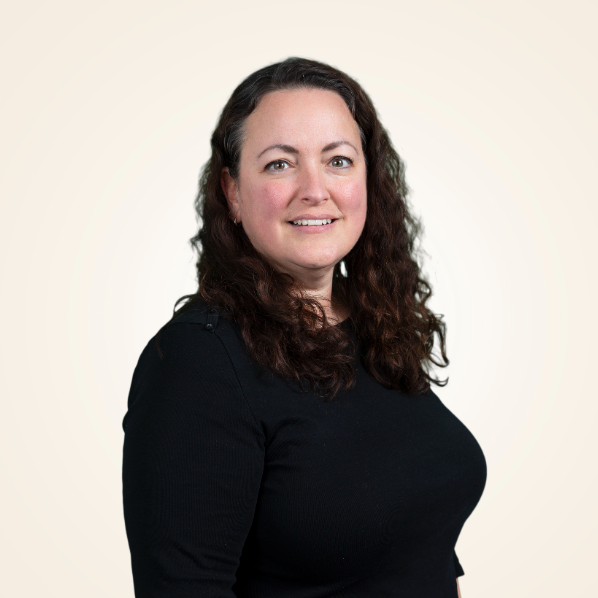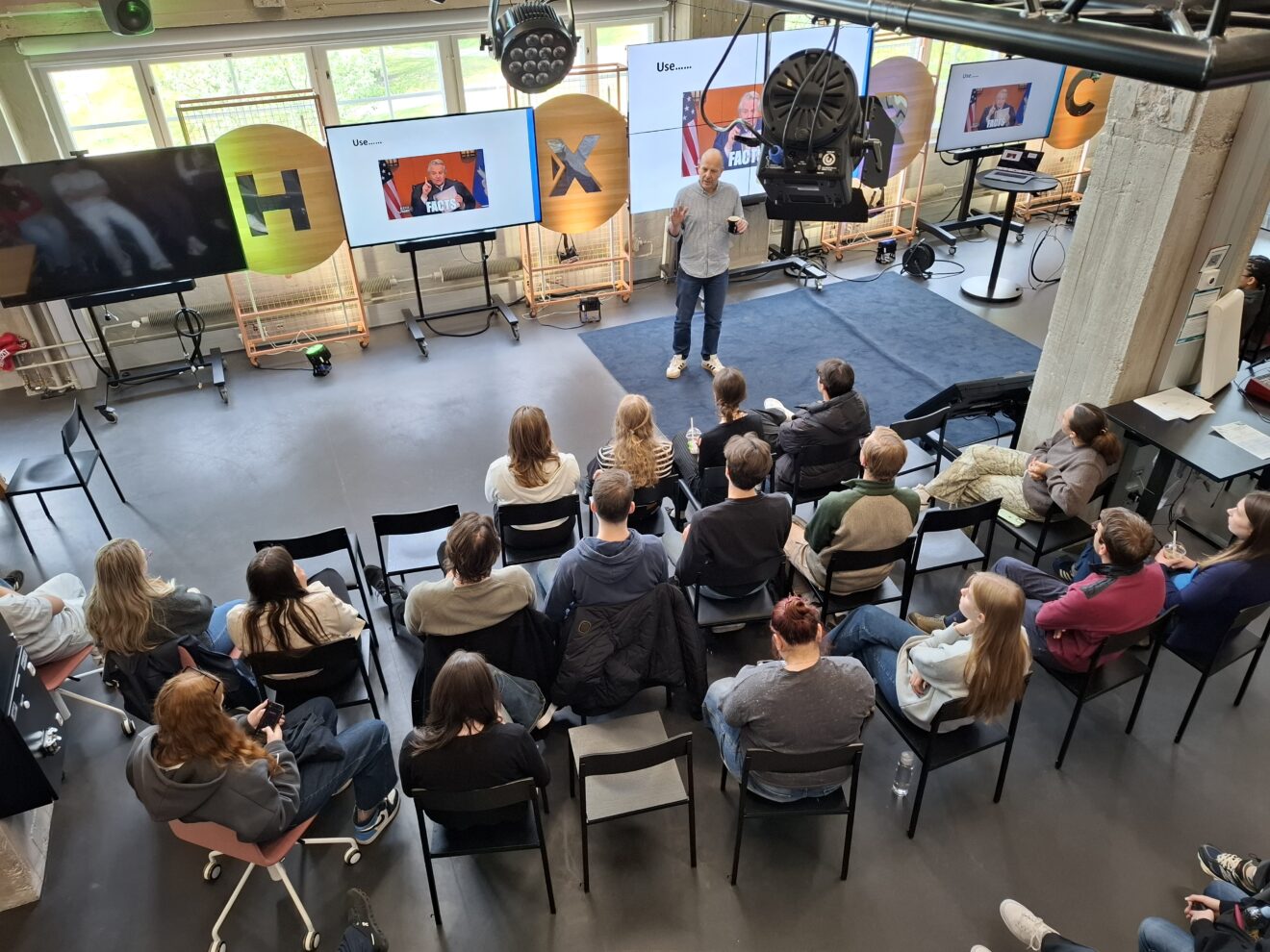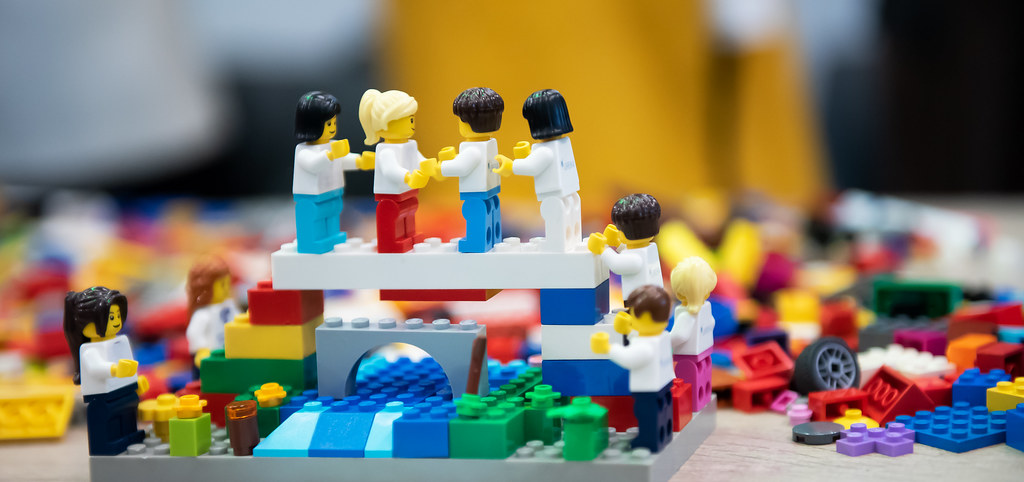As we all face the effects and the potential effects of climate change, actions are necessary build a better future. The best way we, as higher education institutions, can do this is to weave the necessary mindset and knowledge into the education we provide our students. It is these students that must be changemakers and thought leaders to follow through on what needs to happen. They need to be able to create a vision of what their lives will be and what kind of society they want to live in for the rest of their lives. This means that cities need to function differently. Taking inspiration from Maya Angelou’s famous saying: “Do the best you can until you know better. Then when you know better, do better”. It is time for us to make the latter part a reality.
Doing better
The 4th U!REKA Change Agents Innovation Challenge course took place at Metropolia University of Applied Sciences in May 2025. This event is designed to rotate between the U!REKA European University Alliance partner institutions and 2025 was Metropolia’s turn. Change Agents is a Blended Intensive Programme (BIP) which is a hybrid course that includes both online and in- person sessions; the in-person sessions are usually a short mobility for most of the students. This BIP also included an innovation challenge during the in-person week (not all BIPs do). Change Agents is designed with three online sessions during April and early May before the in-person week and then one online session after the in-person week with five full days in Helsinki for an international innovation challenge in the form of a sprint. This sprint is where students work intensively with their team on their own idea to create a developed concept that will be presented for possible further development.
This 2025 implementation saw 33 students from seven higher education institutions from the U!REKA partnership, form seven diverse teams over the five-day program. The partners that joined the 2025 Change Agents were:
- University College Ghent (Hogent)
- Amsterdam University of Applied Sciences
- Frankfurt University of Applied Sciences
- University of Applied Sciences BFI Vienna
- Polytechnic University of Lisbon
- Odessa National Economic University
- Metropolia University of Applied Sciences
The Change Agents 2025 theme was Climate neutral and smart cities. This theme is a guiding theme of the U!REKA European University Alliance. Everything we do in the U!REKA is geared towards making our cities more climate neutral and smart. Climate neutral and smart cities is a broad theme for the students to be working on. It left a lot of space for the teams to tackle issues that they wanted to pursue together. This really showed in the topics that the students’ teams chose to pursue during the week in Helsinki.
Learning by mixing it up
Once we knew what kind of students would be joining us on this innovation challenge journey, we focused on creating inter-disciplinary teams as well as intercultural collaboration, as these teach so many lifewide skills. The benefit of this approach is being able to expose each of the students to as many diverse perspectives as possible. We had students from five broad subject areas:
- Social sciences & human services
- Business, finance & economics
- ICT & computing
- Engineering, construction & technical fields
- Aviation
The same process was done so each team had students from different institutions. This made sure that everyone started this course with the same context when it came to team building. Nobody knew their teammates before this course.
Collaboration brings fresh perspectives, challenges assumptions, and fuels creativity. This is why we engineered the teams in the beginning to include a person from each institution and different subject areas. When people work together with different perspectives in open dialogue, this can lead to new ideas and breakthroughs that people cannot reach on their own. Innovation rarely happens in isolation and thrives when diverse minds come together.
Spotlight HSY
From the beginning of the course, the students were presented with diverse perspectives and lenses on the topic of climate neutral and smart cities. During the initial online sessions, we had speakers give lectures on issues such as smart mobility in urban areas, the social worker perspective to what this means for people and how they live, the ethics of decisions and what this looks like. These lessons did not stop when the students arrived in Helsinki. At the beginning of the second day of the Helsinki week, the participants and the teachers had the opportunity to do a field trip and headed to the Helsinki Region Environmental Services Authority (HSY). According to their website, their role is to “provide municipal water supply and waste management services, as well as information on the Helsinki metropolitan area and the environment” (HSY n.d.).
This half-day visit consisted of a talk about how climate change is affecting various aspects of society and natural resources differently in regions around the world. In addition, there was a presentation about what HSY’s role is in the Helsinki region as responsibility for waste management and water services are in the face of these changes. This also includes their own energy efficiency as an organization and the steps they are taking to help residents of the area make their own changes to be more climate neutral—including for example an online course, events, training, webinars, and social media campaigns.
The latter part of the visit was made up of four mini workshops where the participants could do hands-on activities related to wastewater treatment, poop, climate resilience and adaptation, and sustainable mobility.
Teamwork in action
Seven inter-cultural and inter-disciplinary teams started the week off already teamed up from the first online session and had already worked a little together before arriving in Helsinki, so it was easier to have them set about creating their team values and working on their ideas. Along with the students, almost each institution sent a teacher who could offer help to the students if they had questions during the challenge week. During the week, the students were able to access help from any of these teachers or mentors present when they needed it. Whether this was for their subject expertise or their innovation process expertise. There were also two student mentors from Metropolia UAS that had previous experience in innovation challenges. They helped with questions of teamwork and advice on Helsinki in general.
The Helsinki XR Center, on Metropolia’s Arabia campus, was a great place to do this work as it is an inspiring space with many areas for group work. The teams worked diligently until Thursday afternoon when it was time to present their concepts to attendees of the U!REKA Connects conference that was happening in parallel to U!REKA Change Agents on Metropolia’s Myllypuro campus.
The Thursday afternoon slot in the U!REKA Connects conference calendar was secured so that the Change Agents students could present their concepts to people outside of our bubble: to people from their own institutions and others. All seven pitches were made with great enthusiasm in the largest lecture theatre on campus. There were questions and comments from a jury and from the audience. This was not the last time that they would make their pitch as there would be a final pitch session online two weeks later. This two-week gap gave the students time to refine their concepts considering the comments and questions they received.
Beyond the challenge
There were many lessons learned during the 2025 Change Agents programme and many of them were outside of the challenge topic. Short-term mobility structured as intensive challenge-based learning is very effective in broadening students’ perspectives and skills. When the students were asked what they found the most valuable from this course, their responses fell into six different categories: international collaboration, teamwork and communication skills, public speaking, meaningful challenges that reflect the real world, the tools and support they got, and personal growth. Only one of these six reflects the topics that they were explicitly learning about. This kind of intensive, challenge-based approach is valuable for the students in many ways, and it is an experience they will remember for the rest of their lives.
In the autumn, you will be able to check the U!REKA website to learn more about Change Agents 2026!
References
HSY n.d. HSY. Accessed 22 June 2025.
Author
-

Pamela Spokes
Specialist, TurbiiniPamela Spokes BA, MA, MBA, AmO. Educator in Service Design and Entrepreneurship with the Turbiini Pre-Incubator Programme in English.
About the author

